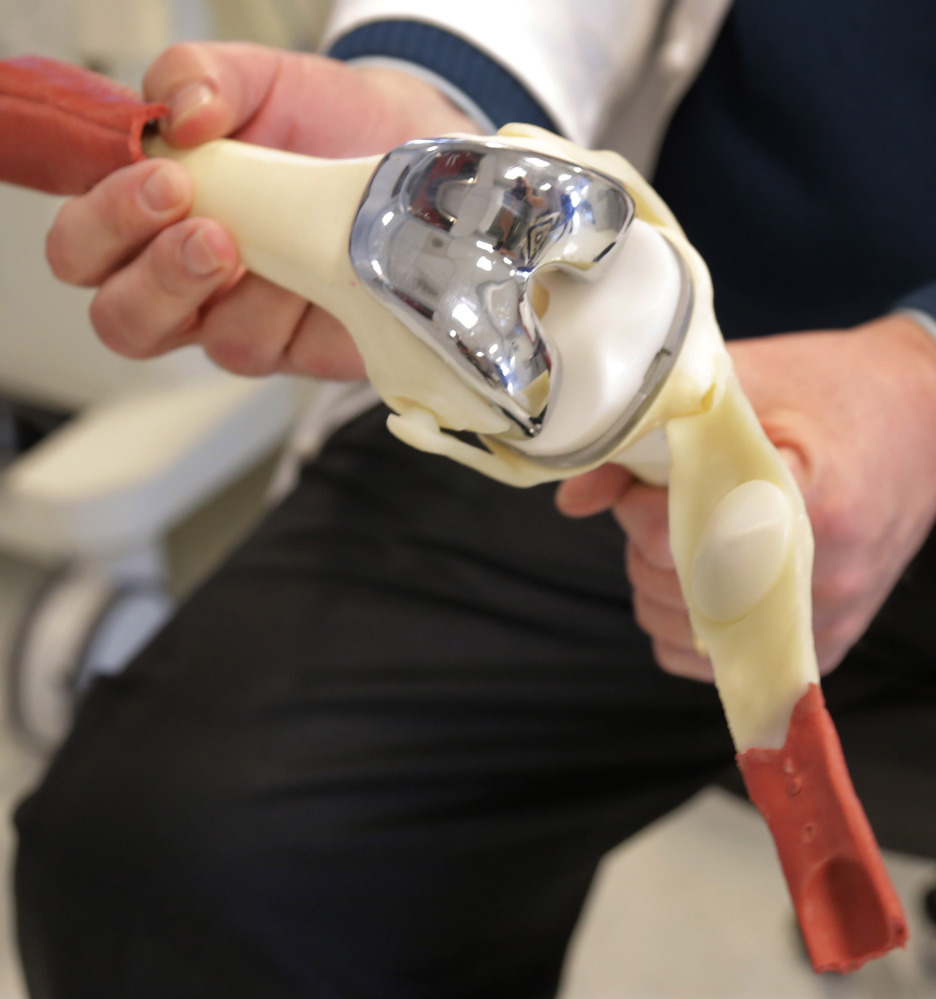People with knees worn out by arthritis will get more pain relief from joint replacement surgery, but it has more risks and there’s a good chance that less drastic approaches also would help. That’s the bottom line from the first study to strictly test other treatments against knee replacement, an operation done hundreds of thousands of times a year in the U.S.
“It’s one of the great operations of the 20th century,” yet good evidence of its effectiveness has been lacking, said Dr. Jeffrey Katz, a joint specialist at Brigham and Women’s Hospital in Boston.
He wrote a commentary that appears with the results in Thursday’s New England Journal of Medicine, and said the right choice will be different for each patient, depending on goals, overall health, and whether the person wants to have or avoid surgery.
More than 670,000 total knee replacements are performed annually in the United States, mostly for arthritis, which erodes cartilage in the joints.
Medical experts advise trying other things before considering surgery, such as weight loss, physical therapy, exercise and medicines, and many studies show these can help. But for how long is not known, nor are there good comparisons of side effects.
Researchers in Denmark assigned 100 patients to either 12 weeks of non-surgical treatment – physical therapy, exercise, diet advice, special insoles and pain medicine – or surgery followed by 12 weeks of the other treatments.
After one year, the surgery group improved twice as much as the others did on scores for pain, activities of daily living and quality of life. However, two-thirds of those not given surgery still had a meaningful improvement, and only one-fourth of them ended up having surgery within the year.
Complications were more frequent with surgery, including several serious deep vein clots, a fracture and a deep infection. And other studies show that surgery “is not universally successful,” and that 1 in 5 patients still have some pain six months later, Katz wrote.
Others viewed the results as a clear victory for surgery.
“This certainly adds to the evidence that what we’re doing is effective and improves patients’ quality of life,” said Dr. Joshua Jacobs, a joint surgeon at Rush University Medical Center in Chicago and spokesman for the American Academy of Orthopaedic Surgeons.
Copy the Story LinkSend questions/comments to the editors.



Success. Please wait for the page to reload. If the page does not reload within 5 seconds, please refresh the page.
Enter your email and password to access comments.
Hi, to comment on stories you must . This profile is in addition to your subscription and website login.
Already have a commenting profile? .
Invalid username/password.
Please check your email to confirm and complete your registration.
Only subscribers are eligible to post comments. Please subscribe or login first for digital access. Here’s why.
Use the form below to reset your password. When you've submitted your account email, we will send an email with a reset code.